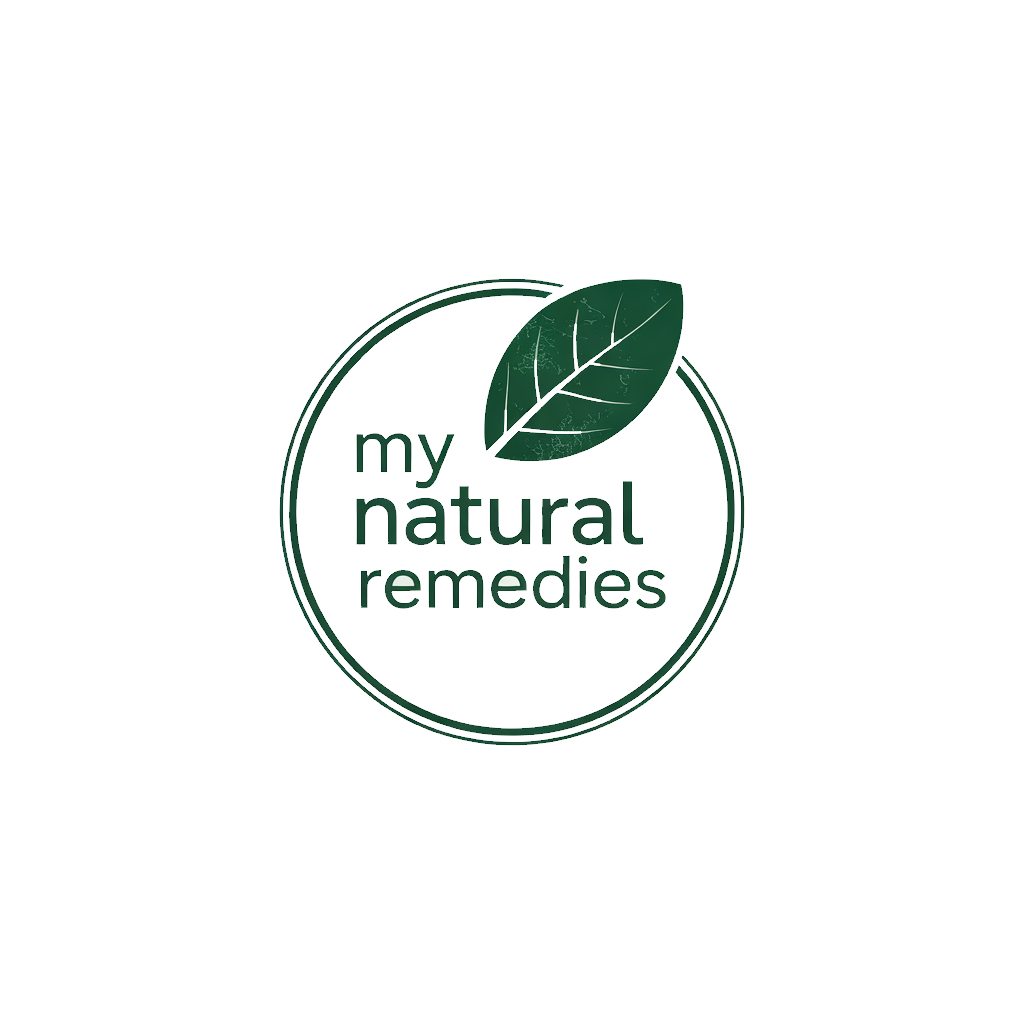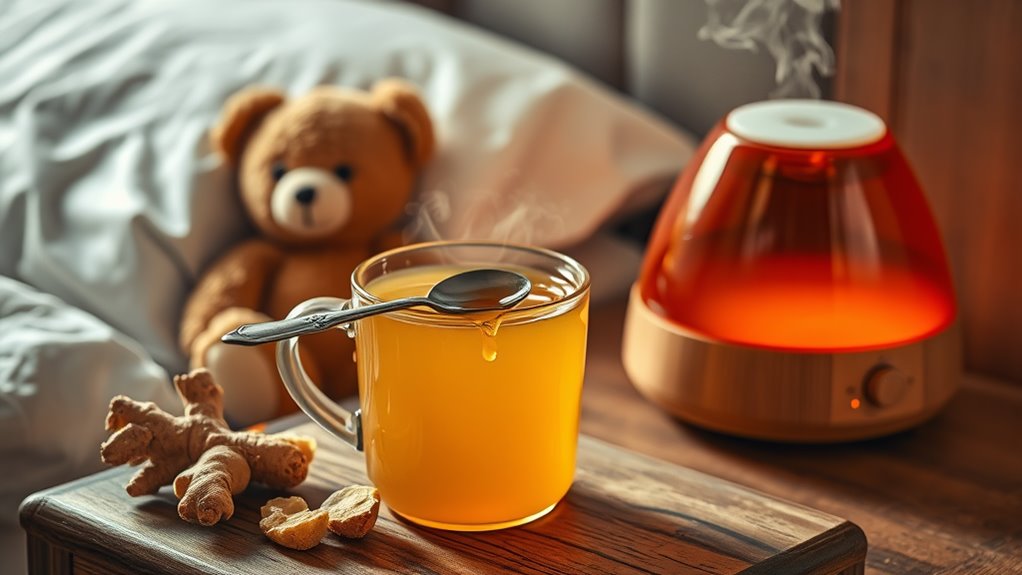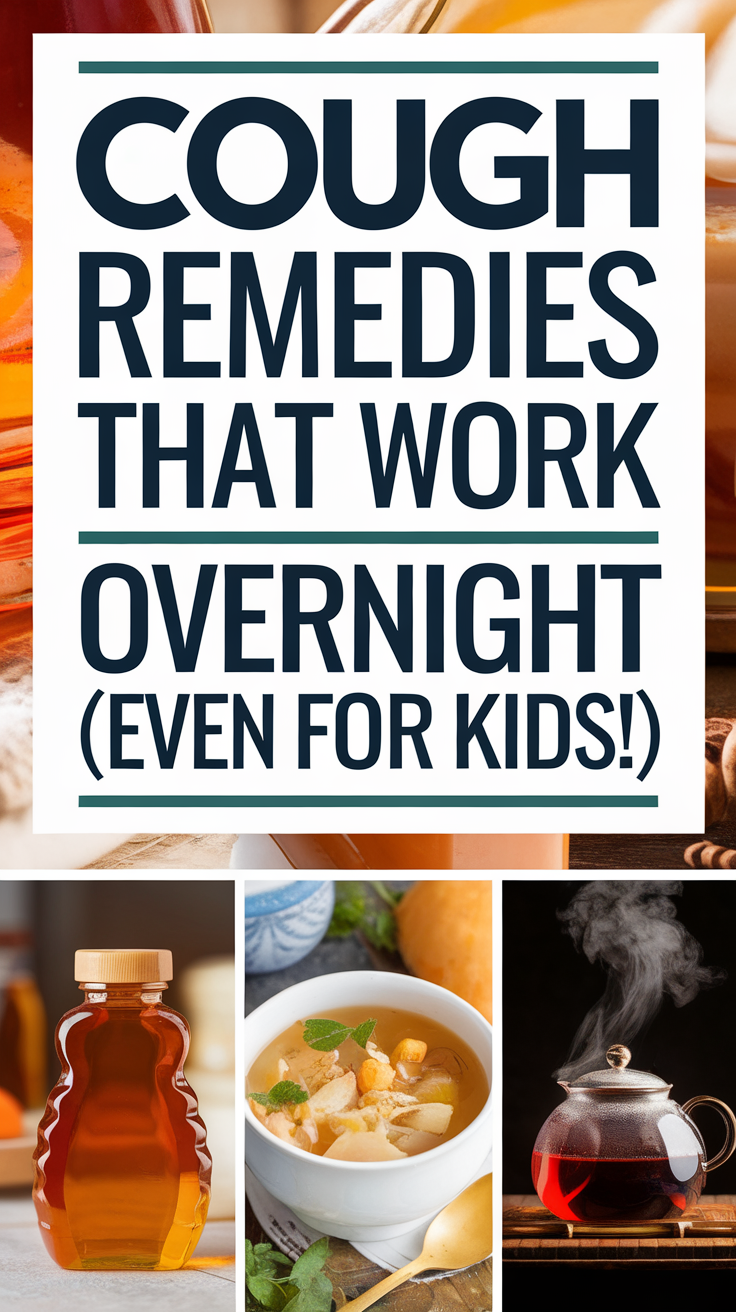Cough Remedies That Work Overnight (Even for Kids!)
You’ll find quick relief from nighttime coughs with proven remedies that work for both adults and kids. Try steam therapy to loosen mucus, raw honey (for children over 1) to coat the throat, or warm herbal teas with ginger and thyme. Set up a cool-mist humidifier and elevate your head while sleeping. For persistent symptoms or severe cases, especially in children under 4, consult your doctor. Discover more ways to stop that cough and get the rest you need.
Understanding Different Types of Coughs and Their Causes
Although coughs may seem similar, they actually come in several distinct types that require different treatments. You’ll find dry coughs that irritate your throat without producing mucus, and wet coughs that help clear infection-causing phlegm from your chest. Each type signals different underlying causes that you need to address.
Like many of us dealing with seasonal illness, you might experience either an acute cough lasting less than three weeks or a chronic cough persisting beyond eight weeks. Common triggers include viral infections, allergies, acid reflux, and asthma.
When you understand your specific type of cough, you’re better equipped to choose the right remedy and get the rest you deserve. The key is identifying whether your cough is productive or non-productive before starting treatment.
Natural Remedies for Nighttime Cough Relief
When you’re struggling with a nighttime cough, natural remedies like steam therapy and honey can provide quick relief by loosening mucus and soothing irritated airways.
You’ll find that inhaling steam with essential oils before bed helps clear congestion, while taking a spoonful of raw honey coats and calms your throat.
Sipping on herbal tea blends containing ingredients like thyme, marshmallow root, or licorice can further ease your cough symptoms and promote better sleep.
Steam and Honey Treatments
Steam and honey offer powerful natural relief for nighttime coughing. You’ll find these remedies especially soothing when you’re trying to get some rest. Take a hot shower before bed or use a humidifier to create a moist environment that helps loosen congestion.
| Treatment | Duration | Benefits |
|---|---|---|
| Steam Bath | 10-15 min | Opens airways |
| Honey Tea | Before bed | Soothes throat |
| Face Steam | 5-10 min | Reduces congestion |
For best results, mix a tablespoon of raw honey into warm (not hot) water or herbal tea. You can also try adding honey to steam treatments by placing a bowl of hot water with honey nearby while you inhale the vapor. These methods work well together, creating a comforting routine that’ll help you drift off to sleep naturally.
Herbal Tea Blends
Since ancient times, herbal tea blends have provided reliable relief for persistent nighttime coughs.
You’ll find that combining specific herbs creates a powerful, natural remedy that soothes your irritated throat and suppresses coughing while you sleep.
Try mixing thyme, marshmallow root, and licorice root for a potent blend that coats and calms your throat.
Add a slice of fresh ginger and some honey to boost its effectiveness.
For a milder option, chamomile tea with slippery elm bark works wonders, especially when you’re feeling anxious about your cough.
Remember to steep your tea for at least 10 minutes to extract the herbs’ beneficial compounds.
Sip it slowly about an hour before bedtime, and you’ll likely notice a significant reduction in nighttime coughing episodes.
Safe Over-the-Counter Solutions for Children
Although treating children’s coughs requires extra care, several over-the-counter medications can provide safe relief.
You’ll want to look for age-appropriate formulas containing dextromethorphan or guaifenesin, which help suppress coughs and thin mucus. Many parents trust brands like Children’s Robitussin or Delsym, specifically designed for little ones.
Always check the label for proper dosing based on your child’s age and weight. Don’t give cold medicines to children under four years old without consulting your pediatrician first.
For children over four, you can try honey-based cough suppressants or single-ingredient medications that target specific symptoms. Remember to keep track of when you’ve given the medicine, and never exceed the recommended daily dose.
If symptoms persist beyond a few days, it’s time to call your doctor.
Creating the Perfect Sleep Environment for Recovery
When you’re battling a persistent cough, setting up the right sleep environment can dramatically speed up your recovery.
Start by raising your head with an extra pillow to reduce postnasal drip and minimize nighttime coughing. You’ll want to maintain optimal humidity levels – around 50% – using a cool-mist humidifier to soothe irritated airways.
Keep your bedroom temperature between 65-68°F, as cooler air helps reduce inflammation in your airways.
Don’t forget to change your sheets frequently, as allergens can worsen your cough. If you’re using a heating system, place a bowl of water near the radiator to add moisture to the air.
For extra comfort, try diffusing eucalyptus or lavender essential oils, which can help you breathe easier and promote restful sleep.
When to Seek Medical Attention for a Cough
While most coughs can be treated at home, you’ll need immediate medical care if you experience severe chest pain, coughing up blood, or difficulty breathing.
You should also contact your doctor if your cough persists for more than three weeks or is accompanied by unexplained weight loss, fever above 101°F, or night sweats.
If you’re over 65 or have underlying health conditions like heart disease or diabetes, it’s especially important to monitor your cough symptoms closely and seek professional help sooner rather than later.
Emergency Cough Warning Signs
Despite the effectiveness of home remedies, certain cough symptoms require immediate medical attention. If you’re experiencing severe chest pain, difficulty breathing, or coughing up blood, don’t wait – head to the emergency room right away. These symptoms could indicate serious conditions that need professional care.
You should also seek urgent medical help if your cough comes with high fever (above 103°F), severe wheezing, or produces thick, greenish-yellow mucus.
Be especially vigilant if you’re feeling confused, dizzy, or having trouble staying awake. For parents, watch for signs of respiratory distress in children, including rapid breathing, blue lips, or inability to drink fluids.
When Adults Need Doctors
Adults experiencing persistent coughs lasting more than three weeks should consult their healthcare provider, even if symptoms seem mild.
You’ll also want to seek immediate medical attention if you’re coughing up blood, experiencing chest pain, or having difficulty breathing.
Don’t ignore symptoms like unexplained weight loss, night sweats, or fever above 100.4°F. These could indicate a more serious underlying condition.
If you’re losing sleep due to coughing or notice your cough is getting progressively worse, it’s time to make that appointment.
For those with existing conditions like asthma or COPD, you should contact your doctor if your cough changes in character or intensity.
Preventive Measures to Avoid Recurring Coughs
Taking steps to prevent recurring coughs is just as important as treating them when they occur. You can join countless others who’ve successfully protected themselves from persistent coughs by adopting simple lifestyle changes and healthy habits.
-
Build your immune system naturally by getting 7-8 hours of sleep each night, just like thousands of health-conscious people who’ve made this their priority.
-
Stay hydrated with warm liquids throughout the day – many in our community swear by herbal teas with honey.
-
Keep your home’s humidity balanced between 40-50%, as recommended by wellness experts worldwide.
-
Practice regular hand washing and avoid touching your face, joining the growing number of people who’ve made these habits second nature.
These proven strategies will help you stay healthy and cough-free alongside others who value prevention.
Frequently Asked Questions
Can Honey Help Stop Coughing During Pregnancy?
You can safely use honey during pregnancy to ease your cough. It’s a natural way to soothe your throat and reduce nighttime coughing, helping you get the rest you need.
Does Sleeping Position Affect How Much You Cough at Night?
Your sleeping position can make a big difference in nighttime coughing. When you’re propped up or lying on your left side, you’ll reduce postnasal drip and acid reflux that trigger coughs.
How Long Should Steam Inhalation Last for Best Results?
You’ll want to steam for 10-15 minutes to get the best results. Don’t overdo it though – longer sessions won’t help more and could irritate your airways.
Why Do Coughs Usually Get Worse After Lying Down?
When you lie down, mucus pools in your throat instead of naturally draining. Plus, your body’s natural cough reflex gets suppressed, letting irritants build up while you’re horizontal.
Are Electric Humidifiers Better Than Traditional Vaporizers for Treating Coughs?
You’ll find both humidifiers and vaporizers helpful, but humidifiers are safer since they don’t heat water. Plus, they’re easier to clean and maintain for long-term cough relief at home.






